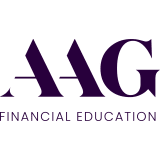This informal CPD article Should you start a Pension for your Child? was provided by AAG Financial Education, a Wealth Management and Professional Services company established in 1995. It will include a brief overview on the most popular options available as well as some helpful tips on how to get started.
1. Ways to save
There are several options for parents and grandparents wanting to put money aside for descendants. The Junior ISA (JISA) is perhaps the most popular. A JISA is an ideal way to provide money for a future house deposit or university fees. A JISA must be opened by a parent or legal guardian, but after that, anyone can contribute.
Less well-known is that children can also have a pension fund as soon as they are born – and setting one up can bring significant tax advantages. Even if your child is a non-taxpayer, they will still get basic-rate tax relief on contributions. That means a maximum of £2,880 a year is automatically grossed up to take account of tax at 20%, giving an annual investment of £3,600.
2. The magic of compounding
“Starting early, and saving regularly can have an extraordinary impact,” notes Rob Gardner, Investment Director at St. James’s Place. “It’s all about compound interest, it is the key to growing wealth. Albert Einstein called compound interest the eighth wonder of the world and said; ‘Those who understand it, earn it, those who don’t, pay it.’ The secret is to start saving into a pension as early as possible, even with relatively small amounts, to take advantage of it.”
Just as with pensions for adults, pension pots for kids have the opportunity to grow in a tax- advantaged environment. And in common with JISAs, anyone can pay into the pension on the child’s behalf – parents, grandparents, godparents, friends or other family members. (Bear in mind that only the child's parents or guardians can set them up initially.)
3. Educational value
Under current legislation, savers can gain access to their pension fund at 55. But the benefits can be felt long before that. Saving into a pension for your children will ease the pressure on them to start their retirement planning while they are just starting out in their careers and facing the costs of starting a family and buying their first home. Moreover, it may help to boost their understanding of tax relief and the value of saving.
"Educating the next generation in financial literacy is not a nice to have – it's the best investment you can make to secure their financial future", says Gardner.
Children learn their money saving habits very early in life, yet young children rarely receive lessons on budgeting and money management. So, helping a child to fund their own pension could be one way to help them understand concepts such as compound interest", adds Gardner, who is also the co-founder of RedSTART, a charity that seeks to improve financial education focused on primary school education.
There is a growing consensus that managing money should form a bigger part of early-years education. But many will argue that it should also be the parents’ responsibility to teach their children the real value of money and how to approach it. Starting a JISA or pension for a child may be the key that gives them the encouragement to learn good saving habits for life.
We hope this article was helpful. For more information from AAG Financial Education, please visit their CPD Member Directory page. Alternatively please visit the CPD Industry Hubs for more CPD articles, courses and events relevant to your Continuing Professional Development requirements.













